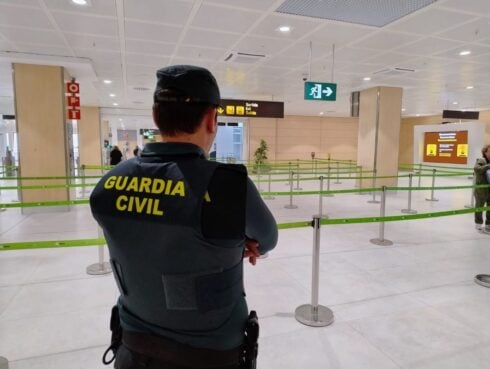BRITISH expats living in Spain could face £20 fines for failing to vote in UK elections under controversial new proposals being tabled by a Labour peer at Westminster.
Lord Foulkes plans to lodge an amendment to the government’s upcoming elections bill calling for Australian-style compulsory voting.
If passed, it which would see all eligible UK voters – including the millions of Britons living abroad – hit with financial penalties if they don’t cast their ballots.
READ MORE: Warning for vapers in Spain as councils start to enforce €2,000 beach fine
The proposal comes just over a year after British expats regained their voting rights through the Elections Act 2022, with more than three million citizens living overseas now able to participate in UK general elections and referendums regardless of how long they have been abroad.
For Spanish-based Britons who fought hard to regain these democratic rights after the arbitrary 15-year voting limit was scrapped, the prospect of being fined for not using them represents a dramatic shift in approach.
Lord Foulkes, a former Labour MSP and MP, argues the £20 penalty would act as ‘encouragement’ rather than compulsion, pointing to Australia’s success with mandatory voting since the 1920s, which has maintained turnout rates consistently above 90%.
The peer told the Daily Record that Britain’s democratic system is ‘broken’, with turnout at the last general election falling below 60%.
He warned: “An increasing swathe of the population tunes out of politics, politicians increasingly position themselves in alignment with the voters who do vote.”
Under the Australian model that Foulkes advocates, the electorate would not be forced to make a specific vote, but could submit spoiled ballots without penalty.
The fine would only apply to those who fail to turn up at all.
READ MORE: Man arrested 13 months after brutal stabbing of female French motorhome owner in Spain
Spanish-based Brits who are registered can vote either by postal vote (though ballot papers can take considerable time to reach Spain and return to the UK) or by appointing a proxy voter in the UK to cast their ballot on their behalf.
Lord Foulkes’ amendment will need to be debated and voted on as part of the government’s elections bill, which must pass through both the House of Commons and House of Lords before receiving Royal Assent to become law – a process that typically takes several months to over a year.
It means we likely won’t know whether compulsory voting will become reality until 2026 at the earliest.
The Labour government has committed to implementing electoral reforms ‘in time for the next general election’, which will be by August 2029 at the latest.
Click here to read more Other News from The Olive Press.








